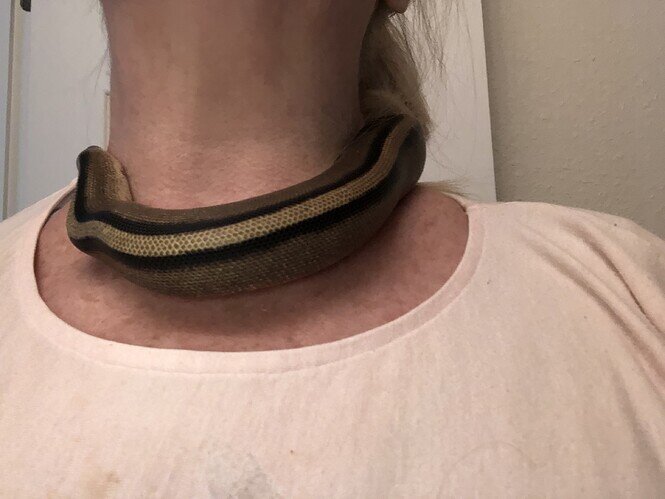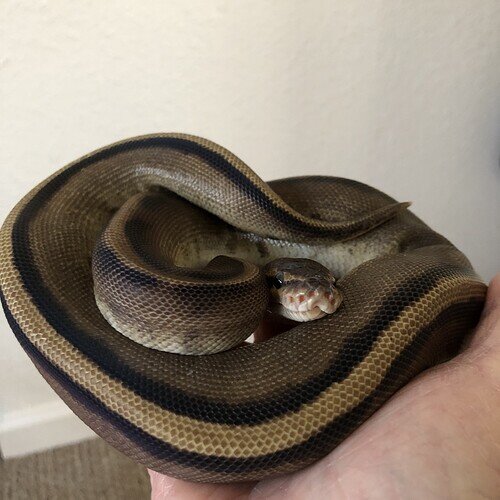I think it’s very much based on an individual animal, and as long as an owner pays attention to that animal’s body language and stress signals, I see absolutely no detriment.
I handle all of my animals regularly (aside from a select couple who really do not like it), for a few different reasons: firstly, I am a breeder second and an educator first, so I do a lot of educational programs about reptiles and as a result I handle my animals a lot and let other people handle my animals a lot because I believe (and research shows) that giving people the opportunity to interact with something they may not understand can drastically change their perspective. So in that regard, letting people hold my animals has a net benefit that is much greater than the potential detriment, especially because I hold my animals so often that they are extremely accustomed to it and show virtually no stress signals at all.
Secondly, I handle my animals because I know that a lot of people want to be able to handle their pets, and while I do sell to breeders, I also sell a lot to pet keepers. I breed ball pythons, crested geckos, sarasinorum geckos, and (fingers crossed) African house snakes. I start handling my baby cresties and my baby balls as soon as they start eating. It means I can get a better idea of their personality for their new owner and I can introduce them to people as not dangerous, which will make it easier to adapt to a home where the owner wants to handle. It also means that the animal will be handleable in the future for sometimes necessary occasions like veterinary appointments, which again, is a net benefit for the animal’s wellbeing.
And finally, I think handling is an often overlooked, very important form of enrichment. I use an enriched rack system but especially for animals kept in a standard rack system with just a water bowl, handling is incredibly important for mental and physical stimulation outside of that environment. From my experience, animals that are socialized will not only breed better during pairing, but they will also be more active inside their enclosures and more curious outside of them, and all of these things are a huge net benefit for the animal AND for the keeper/breeder.
With starting my animals off early, I have very few who do not tolerate handling. Every single ball python I own can be held for at least short periods of time without stress signals, and many of my animals who do still tense up when they’re first picked up very quickly relax because of their association with me and being safe with handling. I have only ever had two animals who didn’t adapt well to handling: female ball python I bought as an adult who was absolutely terrified of me and even after a year of work, was so skittish that I retired her as a breeder because I was afraid she would injure the males; and a gecko species that is new to me (Bavayia robusta) who I was told can’t be handled, but after working slowly with mine for the last few months, she actually very much can be.
Many of my animals display curiosity and exploration behaviors when they’re being handled. I personally will always advocate for handling, if nothing else than for the enrichment that it provides, especially for animals who live their whole lives in small tubs where the most they can move is to stretch out.


